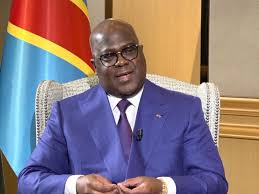The Democratic Republic of Congo’s President, Felix Tshisekedi, has announced that cobalt exporters found breaching the country’s new quota system will face a permanent ban.
The decision follows Congo’s move to tighten controls on its mineral sector to curb fraud and stabilise global prices. Congo produces about 70 per cent of the world’s cobalt, a key metal used in electric batteries.
Exports were suspended in February after prices plunged to a nine-year low. However, a new quota system, set to replace the export ban on Oct. 16, will regulate shipments based on historical export volumes, according to the state minerals regulator, ARECOMS.
Under the new rules, exporters will be allowed to ship up to 18,125 metric tonnes of cobalt for the rest of 2025, with annual limits of 96,600 tonnes for both 2026 and 2027.
Cabinet minutes seen by Reuters at the weekend indicated that Tshisekedi ordered “exemplary sanctions,” including permanent exclusion from the cobalt regime, for any company that violates the system.
The minutes confirmed that only ARECOMS has the authority to issue, adjust, or revoke export quotas.
The previous ban, extended in June, had prompted force majeure declarations from major producers such as Glencore and China’s CMOC Group. While Glencore expressed support for the quota framework, CMOC strongly opposed it.
Tshisekedi credited the export freeze with helping cobalt prices rebound by 92 per cent since March, describing the quota policy as “a real lever to influence this strategic market” after years of “predatory strategies.”
The measures come amid heightened conflict in mineral-rich eastern Congo, where fighting between M23 rebels and the army has caused thousands of deaths and mass displacement.
A U.S.-backed peace initiative suffered a setback on Friday when Congo and Rwanda failed to sign the Regional Economic Integration Framework, a proposed accord intended to make their mineral sectors more appealing to Western investors.
(NAN)


